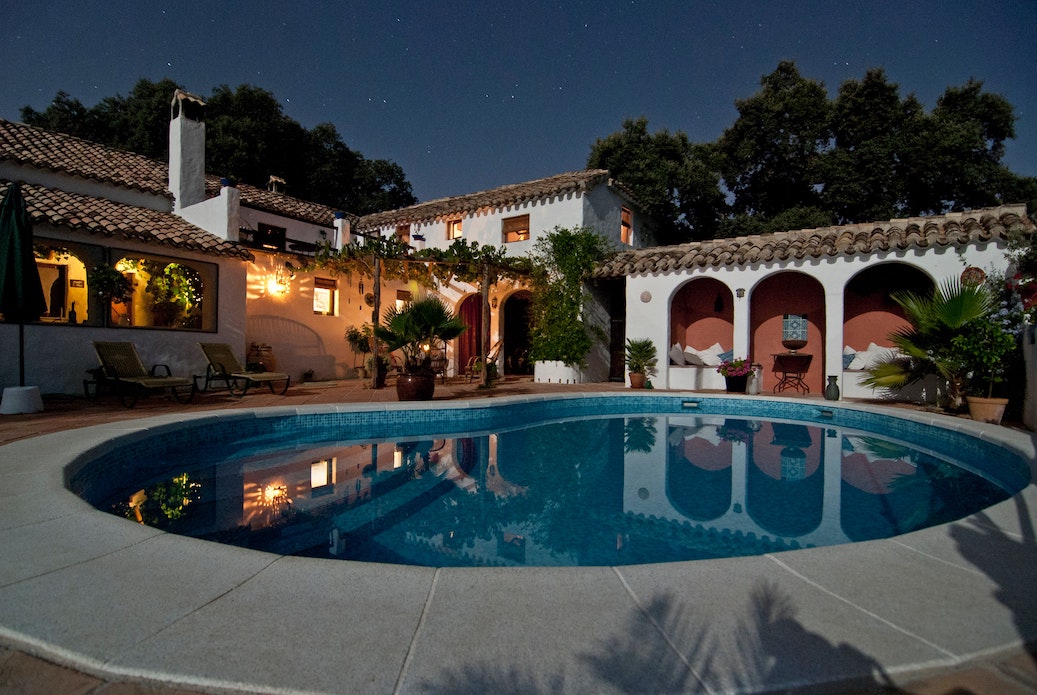Property extensions in Spain – adding them to the deeds
Are you planning on building an extension to your property such as a swimming pool, a basement, an enclosed porch or solarium, or maybe thinking of making some home improvements?
It is also possible that you may have already carried out the works and wish to legalise your property in Spain.
Either way, in this article and video we set out how to obtain a building license for extensions as it is very important to update your Spanish property Deeds before you sell a property.
Before Work Starts
If the works haven’t started yet, you should request a building permit to the corresponding Town Hall to be able to initiate the works. There are two types of building permits: major works and minor works. If you are not sure which one you should apply for or don’t know how to do it, it is advisable to seek legal advice. In any case, all extensions which result in an increase of the surface area will require a major works permit (“licencia de obra mayor”). To request this permit, you would also need an architect’s project.
Once the works are completed, the same architect who arranged the project, will have to issue the final works certificate so the property description at the land registry can be updated. This last step is largely forgotten in many cases and causes delays years later when selling a property. To avoid delays, it is always advisable to ensure that your architect gets this done right after the works are finalised.
Legalising Previous Work
However, if the works were done some time ago and you now wish to legalise the property extension in Spain, the way of legalising the extension would depend on its age.
Each region in Spain has its own regulations and its own terms, but if the extensions are old enough according to the corresponding region’s rules, a Certificate of Antiquity would be sufficient to update the Spanish property Deeds. Otherwise, if the works were carried out recently, an architect’s project will need to be presented to the Town Hall in order to obtain the permit retrospectively.
If you do not legalise the extensions, the Town Hall could find out and impose fines. They could even request that you demolish the works if the infraction of not requesting the building permit has not expired yet.
Also if your property is part of a Community of owners, ideally, before you start any works, it is advisable to obtain consent from your neighbours. This permission can be requested at an Annual General Meeting, if the works you wish to do are not currently allowed by the statutes, that is, the General Rules of the Community of owners.
If this consent was not requested originally, it can also be requested at a later stage. This permission from the Community of owners will be needed when updating your Spanish property Deeds.
Having a building permit from the Town Hall ensures that your extension is legal, but this does not mean that your property Deeds will be updated automatically. This is something you will have to do yourself, or through a Spanish Lawyer.
Updating your Deeds
To update your Spanish property Deeds, you will need to present all of the above documents to a Notary, who will prepare a Deed of new works declaration which you, or your representative, will have to sign before the notary.
This Deed will then be duly registered at the Land Registered and your property will be fully updated. The value of the works are taxed at the corresponding rate depending on the region the property is located in and varies from 1% to 1.5% of the value of the works.
It is important to have your Deeds updated, especially if you are going to sell now or in the near future. This will avoid a lot of hassle when selling and will make the selling process a lot smoother.
If you wish to request a building permit now, or want to sell the property but are not sure whether your property needs legalisation the team at My Lawyer in Spain can check your documents and advise you accordingly.




